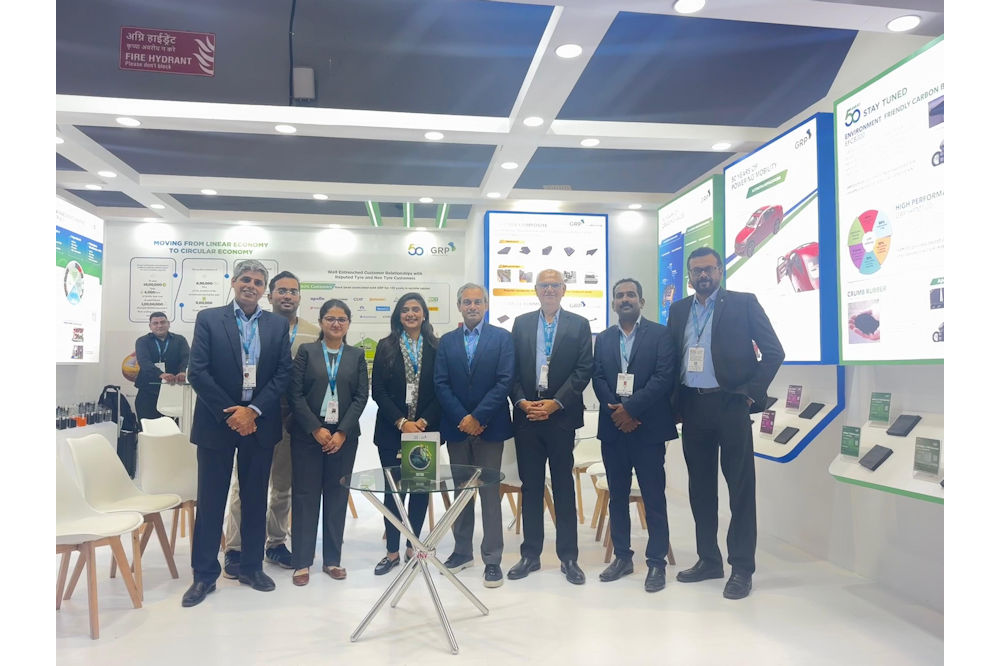The tyre recycling market in India is poised for substantial growth, driven by government initiatives, rising environmental awareness, new applications for recycled materials, and an increasing focus from brand owners on higher substitution rates
GRP Limited has embarked on an expansion drive. “We have expanded capacity to produce crumb rubber, Tyre Pyrolysis Oil and rCB from continuous pyrolysis of ELT. We have added 3600 MT in reclaim capacity and a Phase 1 pyrolysis facility will increase our tyre recycling capacity by 1.5-1.8 times,” confided Harsh Gandhi, Managing Director, GRP Limited.

Commenting on the factors driving the expansion in TPO and rCB side, Gandhi explained, “Beyond tyre companies, there is growing interest in TPO and rCB from ELT recycling, with virgin carbon black producers increasingly incorporating pyrolysis-derived materials.”
He emphasised that new EPR regime was pushing the sector to grow; “Government initiatives, including a stronger focus on responsible waste management and EPR mechanisms, are encouraging recyclers to invest in capacity expansion.”
Meanwhile, GRP has launched high performance reclaim rubber which helps in reducing carbon footprint, while crumb rubber, tyre pyrolysis oil and recovered carbon black are in the pipeline.
“We have registered 11% increase in overall volumes, with an uptick of about 13% in domestic volumes against a 9% growth in export volumes in this year,” he said. “We are seeing domestic consumption of reclaim rubber continuing to increase year-on-year, with H1 FY25 seeing a 10% increase driven by growth in both the tyre and non-tyre segments.”
Challenges for the tyre recyclers
Despite evolving opportunities, the tyre recycling industry is facing multiple challenges. The adoption of circular materials is hindered by product design constraints that limit the use of recycled content. Additionally, the absence of an efficient reverse logistics system restricts the flow of ELT into recycling streams. Policy gaps, regulatory inconsistencies across states, and the lack of standardised product guidelines create additional challenges, limiting the industry’s ability to scale. Financial barriers for informal waste collectors further slow development. Considering the industry is highly energy and labour intensive, skill upgradation could significantly support the industry.
“GRP has been actively investing in switching its energy sources from fossil fuel to renewable sources for operational excellence and reducing its carbon footprint.”
The recycling industry is undergoing a significant transformation, marked by increasing global demand for sustainable materials. “Within the industry of relevance to us, tyre manufacturers are setting sustainability targets to integrate more recycled materials, such as reclaim rubber, biopolymers, and pyrolysis-based polymers, into their products. This shift has led to strategic partnerships between tyre companies and recyclers to incorporate recycled content into their operations, driving sustainability.”
The company observed that rcb sector, is entering a new growth phase, driven by emerging markets like India and the Asia-Pacific region, as well as rising opportunities in the EU and North America.


















